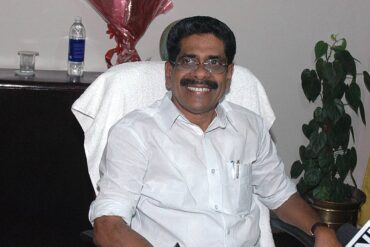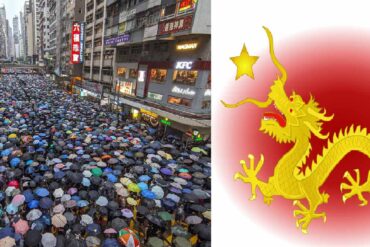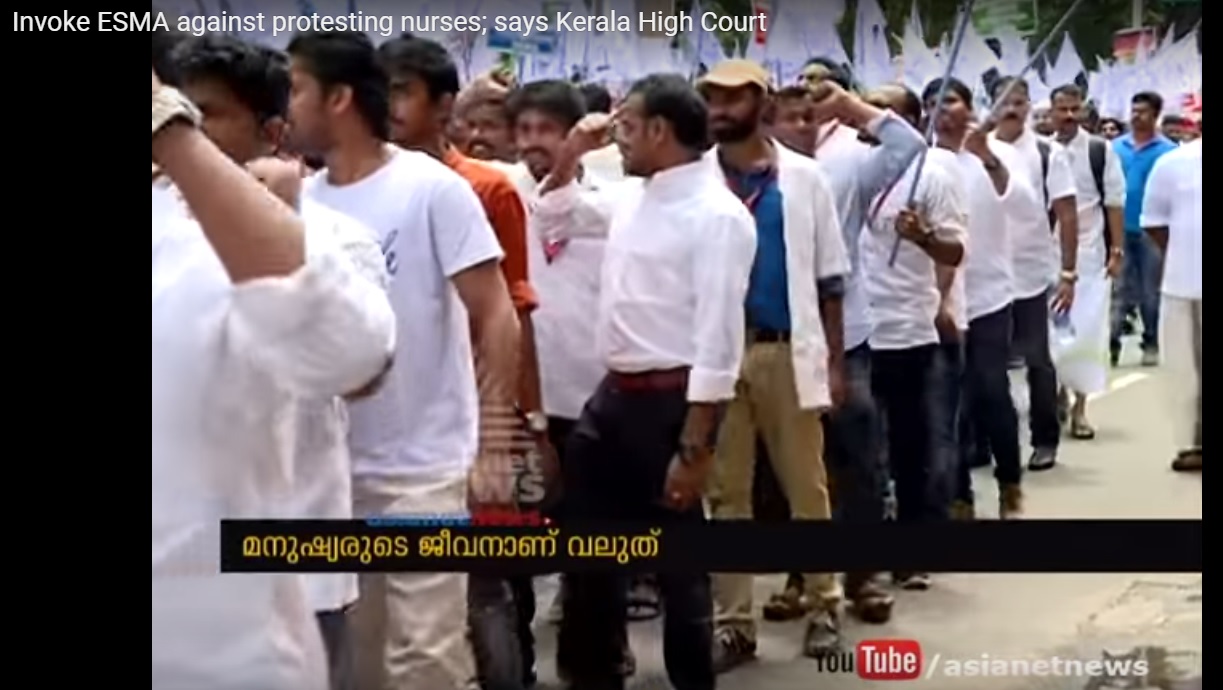The High Court’s direction to invoke ESMA (Essential Services Maintenanace Act), against the striking nurses in the State, has only helped the nurses strengthen their strike, says Indian Nurses Association which leads the strike in the State. “ESMA is a barbaric Act and has very rarely been invoked. To invoke such a law against the nurses who have long been suffering is nothing but a sheer act of cruely,” they said.
Nurses working in private hospitals have been striking under the aegis of the association since June last demanding implementation of Supreme Court Order, issued in September, 2016, which directs the State governments to ensure minimum wage of Rs. 20, 000 for a qualified nurse working in private sector. The order came as a respite to the nursing community who have long been underpaid all across India. It is the first time in the history of the State the nursing community engage in such a massive strike demanding wage increment.
The association leaders allege that the Court order clearly signaled that the Government tried to safeguard the interests of the management instead of taking steps to resolve the nurses’ issues. INA leaders had met the Minister of Labour and Excise T P Ramakrishnan at his cabin on July 4, and the Minister had assured helpful action from the part of the Government regarding their demands. The Government had asked the nurses to wait until July 10. An Industrial Relations Committee meeting for the private sector hospitals was held on the day and the association allege that nothing positive for the nurses came out of the meeting.
“As we had said, the nurses strike have been strengthened after July 10. Nurses from 14 hospital in Kannoor have paused working. Nurses from various other hospitals across Kerala has started striking after July 10,” said the Association’s state president Libin Thomas.
As the stir progressed, the High Court ordered to invoke ESMA to reinstate the nurses service in hospitals. ESMA enables the police to arrest the striking people without warrant. The nurses stick to their demand for the implementation of Supreme Court order and says that ESMA would only help them to stay firm in their demand. The High Court has also directed the State government to take necessary actions on nurses’ demands before July 19. The Court has also set up a mediation committee to mediate in the nurses’ issue. The committee will have it’s first meeting on July 19.
Meanwhile, a woman representative of INA, Praveena from Kannoor, has started hunger strike following the association general secretary Mohammed Shihab and members Sanil Sebastian and Liju Vengal. The association also point out that even though more than 90 percent nurses working in various private hospitals are women, the Womens Commission in Kerala did not find time to pay heed to the nurses’ woes.
“The underpayment of nurses has it’s roots in gender inequality. Most of the working nurses are women. The management and the Governments have long been exploiting these women and their good will amidst the great service the nursing community provide. It cannot be allowed to continue. Not just that the management and the governments had always failed to recognise their work, these women have long been suffering from underpayment, lack of hygienic work environment and poor health owing to heavy work. Most of them are home-bound and committed and the mangements have found that these women could easily be intimidated and we will continue fighting strong against all these discriminatory practices,”said Mohammed Shihab.
The nurses have also declined the Government decision to hike the nurses’ wage to Rs.17, 200 which also includes the daily allowance. The striking nurses termed it an “injustice” and said that they would continue striking until the Government completely agrees the Supreme Court order which ensures a minimum wage of Rs. 20, 000 to a staff nurse in private hospital.
Essential Services Maintenance Act [ESMA]
ESMA is a central law which came into effect in 1968. A law in the similar name was passed in 1952 but was short lived. ESMA was introduced to maintain the essential services in the country without any obstruction. The essential services include public transport, health services and other similar services. ESMA bars the key employees in these services to strike. Even though the ESMA is a central law, it allows the states to include the essential services of their choice the list. Kerala follows the Kerala Essential Services Act of 1994. The Delhi Government had invoked ESMA against around 20,000 striking nurses in the State last year.
Main photograph is a screengrab of a video via Asianet News.







